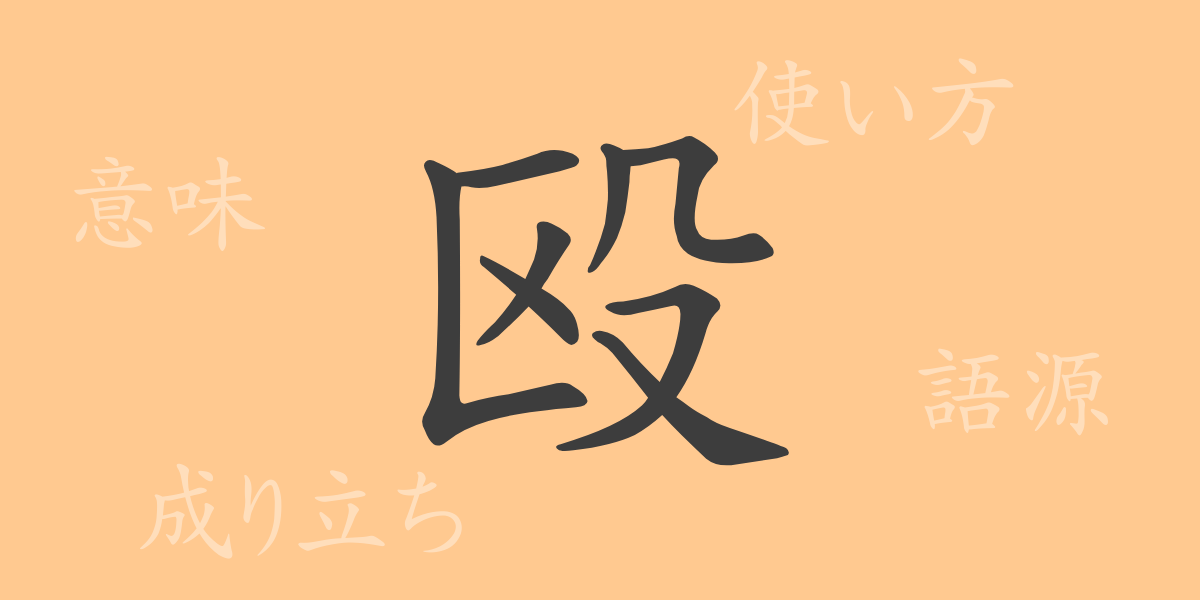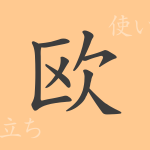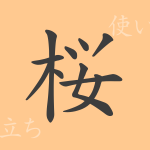“
Each character in the Japanese writing system has its own unique history and meaning. The common kanji character “”殴”” (Nagu.ru) is no exception. In this article, we will delve into the origins of “”殴”” (Nagu.ru), its modern usage, and even the expressions that use this character, exploring its charm. By understanding the power that characters hold, our use of language will become richer.
The Origin (Etymology) of 殴 ( Nagu-ru)
The character “”殴”” (Nagu-ru) is derived from ancient Chinese pictographs. Originally, it had the shape of a hand holding a stick, depicting a person striking another. As time passed, its form became more abstract, settling into the current character “”殴”” ( nagu-ru). This kanji has been used since ancient times as a word indicating aggressive behavior.
The Meaning and Usage of 殴 (Nagu-ru)
“”殴”” (Nagu-ru) is used as a verb, primarily meaning “”to hit”” or “”to strike.”” It often refers to direct physical attacks, but it can also be used metaphorically. For example, the character can be used to express verbal attacks, as in “”言葉で殴る”” (Kotoba- de -nagu-ru), meaning “”to strike with words.””
Reading, Stroke Count, and Radical of 殴 (Nagu-ru)
The character “”殴”” (Nagu-ru) is understood in Japanese by its basic reading and components.
- Reading: The on’yomi is “”ō,”” and the kun’yomi is “”nagu.ru.””
- Stroke Count: The kanji “”殴”” (Nagu-ru) has a total of 8 strokes.
- Radical: The radical is “”殳”” (Hokozukuri). This is a common radical for kanji related to weapons or attacks.
Idioms, Phrases, and Proverbs Using 殴 ( Nagu-ru) and Their Meanings
Many strong expressions use the character “”殴”” (Nagu-ru) in compound words, idiomatic phrases, and proverbs, stemming from its direct meaning. For example, “”殴打”” (ōda) means “”to beat up,”” representing physical violence. Also, “”言葉の殴り合い”” (Kotoba -no- nagu-ri-a-i) is an idiomatic phrase meaning a heated verbal argument. In proverbs, it is used in expressions like “”雨にも負けず風にも負けず、ただ一度も殴られず”” (Ame- ni mo- ma-kezu -kaze- ni mo- ma-kezu, tada- ichido -mo- nagu-rarezu), which describes a steadfast attitude of living without giving in to adversity.
Summary of 殴 (Nagu-ru)
Through this article, we have seen the various aspects of the kanji character “”殴”” (Nagu-ru). More than just a simple character, “”殴”” (Nagu-ru) has deep meaning and history, playing a role in expanding the range of expression in the Japanese language. Understanding the meaning behind each word is key to enriching communication. Let us continue to cherish words while keeping in mind the background of kanji characters like “”殴”” (Nagu-ru).
“

























